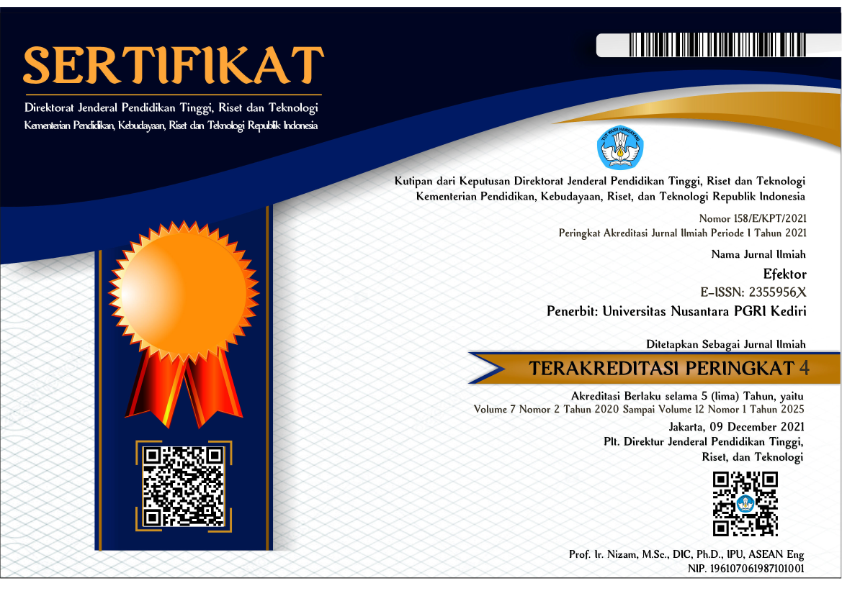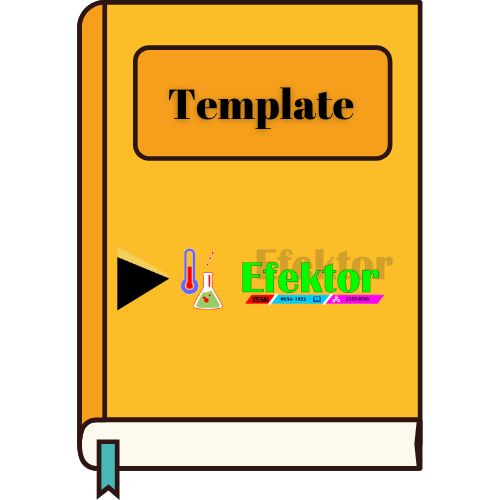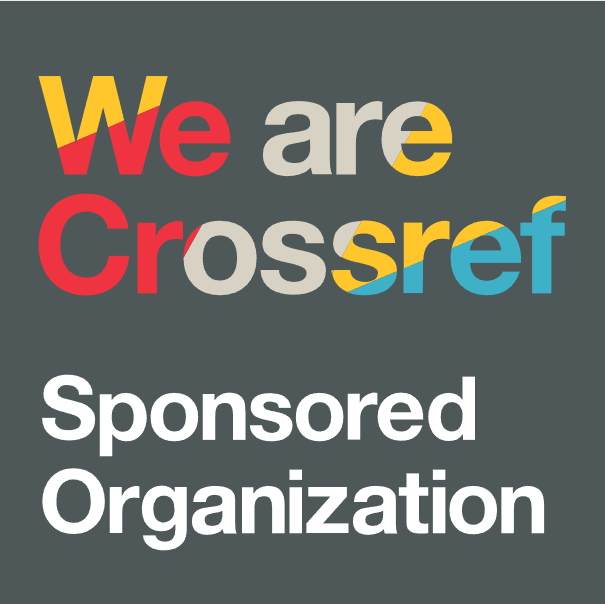Komparasi Model Pembelajaran Problem Based Learning dan Project Based Learning Terhadap Hasil Belajar Siswa Pada Materi Perangkat Keras Jaringan Internet Kelas IX SMP Negeri 5 Sungai Kakap Kabupaten Kubu Raya
DOI:
https://doi.org/10.29407/e.v6i2.13159Keywords:
PBL, PjBL, Perangkat keras Jaringan InternetAbstract
The purpose of this study was to find out: 1) Student learning outcomes after applied Problem Based Learning learning models on network hardware material. 2) Student learning outcomes after the Project-Based Learning learning model is applied to internet network hardware material. 3) Student learning outcomes after being applied to Problem Based Learning learning models are better than student learning outcomes after the Project-Based Learning learning model is applied to internet network hardware material. The method used in this study was an experimental method, with a two-group design posttest only, with a population of 60 students consisting of two classes, and the number of samples for the experiment was 30 students and 30 students controlled. The data collection technique used is the essay test. The conclusions are: 1) The average student learning outcomes after the implementation of the Problem Based Learning learning model on internet network hardware material is 79.17. 2) The average student learning outcomes after being applied to the Project-Based Learning learning model on the internet network hardware material is 75.00. 3) Problem-based learning is better than project-based learning in internet network hardware material on student learning outcomes seen from the significance value of 0.038 smaller (<) than 0.05.
References
Arends, R.I.2013. Belajar Untuk Mengajar, Learning to Teach. Jakarta: Salemba Humanika.
Arends, R.I 1997. Classroom Management and instruction. New York : Mc. Graw-Hill companies Inc
Amir, M. 2009. Inovasi Pendidikan Melalui Problem Based Learning. Jakarta : Kencana
Danim, Sudarwan. 2002. Menjadi Peneliti Kualitatif. Bandung: CV. Pustaka Setia.
Huda, M (2014). Model-model Pengajaran dan Pembelajaran. Yogyakarta: Pustaka Belajar
I Dw A. Trisna Handayani, dkk. 2015. Komparasi Peningkatan Pemahaman Konsep Dan Sikap Ilmiah Siswa Sma Yang Dibelajarkan Dengan Model Pembelajaran Problem Based Learning Dan Project Based Learning. e- Journal Program Pascasarjana Universitas Pendidikan Ganesha Program Studi Pendidikan IPA. Volume 5 Tahun 2015.
Jihad dan Haris. 2013. Evaluasi Pembelajaran, Yogyakarta: Multi Pressindo.
Pranoto, dkk. 2017. Perbandingan Model pembelajaran Problem based Learning dengan Guided Discovery learning terhadap Keaktifan Siswa Kelas X SMA Negeri 1 Ngawi Tahun Pelajaran 2013/2014. Jurnal Pendidikan Biologi (BIOEDUKASI). Vol 10, No 1 tahun 2017.
Rusman. 2013. Model-model Pembelajaran. Jakarta: Raja Grafindo Persada.
R diani,dkk. 2016. Perbandingan Model Pembelajaran problem based learningdan Inkuiri terbimbing terhadap kemampuan Berfikir kritis peserta Didik. Jurnal Penelitian pembelajaran Fisika. Vol 7 tahun 2016.
Sofana, I dan Budihardjo, E. 2010. Teknologi Informasi dan Komunikasi untuk SMP Kelas VII. Jakarta: PT. Setia Purna Inves.
Sutirman.2013. Media dan Model-Model Pembelajaran Inovatif. Yogyakarta: Graha Ilmu.
Wina Sanjaya 2010. Strategi pembelajaran berorientasi standar proses pendidikan, Jakarta : Prenada Media Group
Downloads
Published
Issue
Section
License
Authors who publish with this journal agree to the following terms:
- Copyright on any article is retained by the author(s).
- The author grants the journal, the right of first publication with the work simultaneously licensed under a Creative Commons Attribution License that allows others to share the work with an acknowledgment of the work’s authorship and initial publication in this journal.
- Authors are able to enter into separate, additional contractual arrangements for the non-exclusive distribution of the journal’s published version of the work (e.g., post it to an institutional repository or publish it in a book), with an acknowledgment of its initial publication in this journal.
- Authors are permitted and encouraged to post their work online (e.g., in institutional repositories or on their website) prior to and during the submission process, as it can lead to productive exchanges, as well as earlier and greater citation of published work.
- The article and any associated published material is distributed under the Creative Commons Attribution-ShareAlike 4.0 International License













